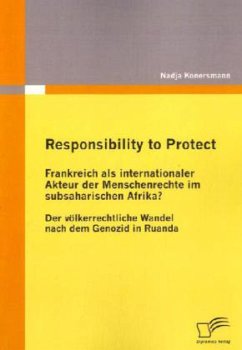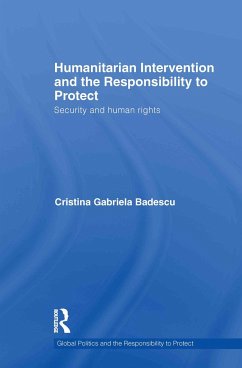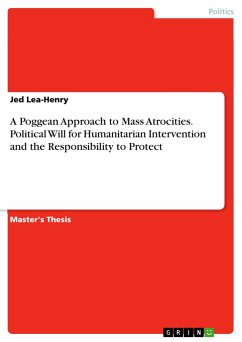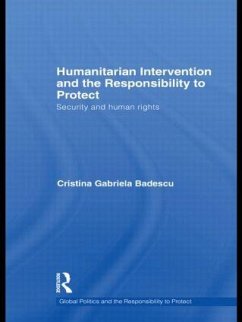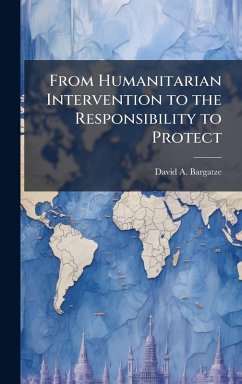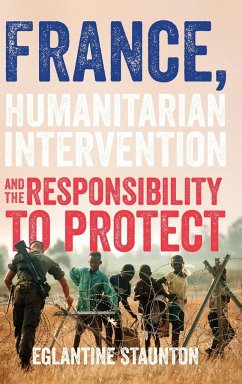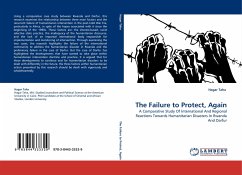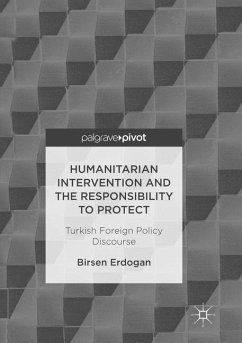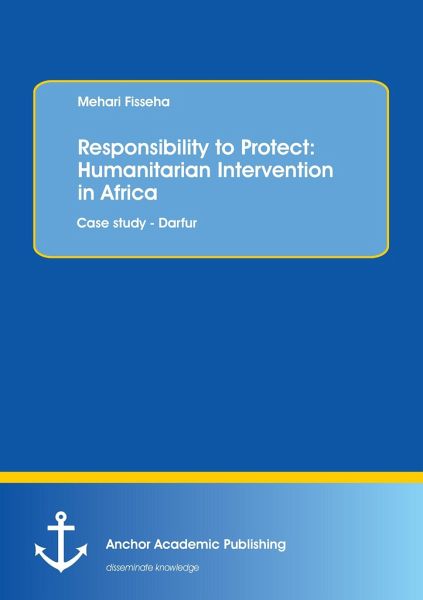
Responsibility to Protect: Humanitarian Intervention in Africa
Case study - Darfur

PAYBACK Punkte
0 °P sammeln!
Killing of the innocent, forced displacement of civilian population, large-scale sexual violence, torture, and destroying of civilian property have been going on since the dawn of civilization. Efforts to protect people against grave crimes of such atrocities more effectively, both in peace and war, gradually evolved over the centuries, and then rapidly accelerated after the Second World War. But, for the most part, those horrors were met with indifference, cynicism, or deep disagreement about how to respond to them. As the twenty-first century began, there was still no universally accepted an...
Killing of the innocent, forced displacement of civilian population, large-scale sexual violence, torture, and destroying of civilian property have been going on since the dawn of civilization. Efforts to protect people against grave crimes of such atrocities more effectively, both in peace and war, gradually evolved over the centuries, and then rapidly accelerated after the Second World War. But, for the most part, those horrors were met with indifference, cynicism, or deep disagreement about how to respond to them. As the twenty-first century began, there was still no universally accepted and effective response mechanism in place to protect civilian population. And this is especially true in the case of Darfur.






